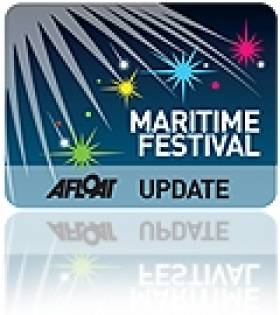Displaying items by tag: Ballymastocker Strand
SeaFest Celebrates Donegal's Coastal Heritage
The shores of Lough Swilly in Co Donegal will come alive with sails at SeaFest 2011 from 1-3 July, celebrating the region's unique coastal environment.
The weekend begins on Friday 1 July with the launch of MalinWaters, a new cross-border marine tourism initiative for the zone between the north of Ireland and western Scotland.
It's followed on the Saturday with a parade of sails and action in the Saldanha Cup, a traditional cruiser-racer sailing regatta that commemorates the 200th anniversary of the sinking of the frigate HMS Saldanha, with a course that takes on the wreck site of the ship near Ballymastocker Strand.
Among the myriad family events taking place on shore, SeaFest will also feature an abundance of Donegal's local food culture, such as fresh seafood from local waters, plus lamb, beef and pork from the county's field, prepared by talented chefs from the region.
For more details visit seafestloughswilly.com.
























































